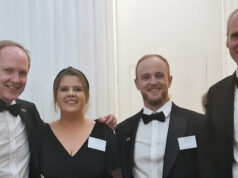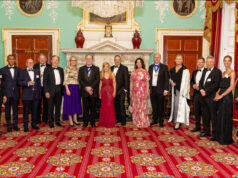The $83.3bn Tata Group’s foreign direct investment projects in Africa grew 27 per cent from 2010 to 2011, representing an annual increase of around 20 per cent since 2007. Other Indian business groups – such as the Aditya Birla Group, Vedanta and the Mahindras – have entered the continent to explore for natural resources, while Tata have diversified into automotive, IT and communications, energy, chemicals and business consultancy sectors.
The Tata Group initially entered Africa in 1977, to market Tata Motors vehicles in Zambia. The company set up their headquarters for African operations in Johannesburg in 1994, and in the last 20 years they have invested $576m in different projects across the continent. The slowdown of other international markets has renewed their interest in Africa.
Neotel expanding markets in Africa
One of the most strategic areas of Tata’s African business is their South African internet and telecoms subsidiary Neotel, acquired in 2007. According to Neotel’s managing director Sunil Joshi: “In terms of number of customers, our business customers grew 92 per cent year-on-year and our retail customers grew 100 per cent.”
“The market that we chose to address in the consumer side was fixed wireless. So that is going to replace the traditional home phone with a fixed wireless solution for homes and offices. We had 50,000 customers [in 2011] and we crossed a 100, 000 [last] year.”
Neotel have built 11,000 kms of fibre optic cables across the continent and are in talks with the SA government to allow them to invest in areas where there is no existing infrastructure. Currently the total market of fixed communication in South Africa is worth a total of ZAR 44bn (US$5.2bn) and Neotel has five per cent of that market share.
Talking about expansion plans Mr Joshi said: “Our capital expenditure for last year was in the range of ZAR 500m. In this fiscal year we have a similar capital expenditure plan. And, 80 per cent of that capital will be used to augment our fibre footprint and 20 per cent of that will be used for automation and growing efficiencies through IT. So we are certainly expanding.”
“We are aiming to expand our telepresence footprint to Cape Town and Durban later this year. We have two data centres and they have room for expansion, and as the requirement continues to grow we will continue to expand data centres.”
Tata’s other Southern African operations
Tata Motors assembly plants
As India’s largest truck and bus maker Tata Motors have increased their production capacity in their assembly plant in Rosslyn, South Africa to export trucks.
Tata’s consultancy arm in Africa
Tata Strategic Management Group (TSMG) is planning on making an entry into the South African, Kenyan, Nigerian and Zambian markets though its sister company Tata International, which is based in Johannesburg.
Being a consulting firm, there are a lot of opportunities in Africa as more companies look to improve their operational performance, beef up their supply chain and logistics, improve their sourcing and sharpen organisational effectiveness.
Shipping iron ore under Tata Steel
Tata Steel, another major part of the Tata empire, has started shipping iron ore from Mozambique in order to solve the raw material problems faced in its European office – Tata Steel Europe. In Europe, Tata Steel is facing a slowdown in growth as the demand has fallen and input costs have increased.
Tata Power’s joint venture with Exxaro Resources
Tata Power has setup a 50:50 joint venture with Exxaro Resources – South Africa’s second largest coal producer. Their joint venture, Cennergi, will develop power generation projects in South Africa, Botswana and Namibia.
Tata Power has also been selected as the preferred bidder for the 139MW Amakhala wind farm project and the 95MW Tsitsikamma wind farm project by the Department of Energy, South Africa.
Exporting coffee from South Africa
Tata Global Beverage, which sells Joekels brand of coffee in South Africa, intends to expand within the continent. They have built a soluble coffee-processing factory at Jinja, Uganda to export it to market in East Europe, Scandinavia and China.










